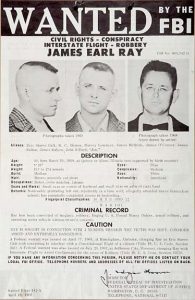Getting a job can be an expensive business, and not just in terms of time and effort. If you’re already in employment and looking for another job, then you may be able to afford travel expenses or a new interview suit. If you’re just finishing your education, or are unemployed, that’s a different matter. Once you’ve been offered the job, you might be asked for a CRB check too. Criminal Records Bureau checks (CRB), are now known as DBS checks but lots of people use the old terminology still. Depending on the type of job, you might not be able to start work without that precious certificate. Most employers happily cover the cost of your certificate, but they don’t have to. So what is your position if you’re asked for a DBS check? Is there a process for getting a free CRB check in any circumstances?
Do I really need a DBS check anyway?
 Not all employers will ask you to apply for a CRB check. It will depend on the type of work you will be doing. Anyone can apply for a basic DBS check. This type of check just verifies your current criminal record. The certificate doesn’t list any offences or cautions which are spent under rehabilitation law. An employer might ask for a basic DBS check to make sure you’re telling the truth on your application. More detailed checks are restricted to certain occupations. It’s actually against the law for an employee to ask for this type of check when it isn’t needed.
Not all employers will ask you to apply for a CRB check. It will depend on the type of work you will be doing. Anyone can apply for a basic DBS check. This type of check just verifies your current criminal record. The certificate doesn’t list any offences or cautions which are spent under rehabilitation law. An employer might ask for a basic DBS check to make sure you’re telling the truth on your application. More detailed checks are restricted to certain occupations. It’s actually against the law for an employee to ask for this type of check when it isn’t needed.
Usually, enhanced and standard DBS checks apply to people who will be working with children, in healthcare or in positions of responsibility or handling lots of money. Depending on the position, a standard or enhanced DBS certificate will show spent convictions and cautions if the police think they’re relevant.
Process for getting a free CRB check
Lots of employers absorb the costs of applying for these checks into their operating costs. So although there’s still a cost, you won’t be the one paying it. Other employers might ask you to pay up front, but refund the cost after you’ve started work. They might also be happy to let you spread the cost. However, there’s no way you can sidestep payment in most cases of paid employment.
Checks for Volunteers
The one group of people who do get a free check – at any level – are volunteers. The thinking behind this is that often volunteers are running charities, or other organisations which don’t have the cash for repeated checks. Volunteers are giving their time and contributing to their communities. The process for getting the certificate is just the same for volunteers, but there is a box to tick on the form saying that it’s a voluntary role, and you won’t pay. If you’re volunteering with a large charity, then they will have clear guidelines to help you. Remember though that DBS checks aren’t portable. You can’t sign up as a volunteer somewhere, get a free check, then use that when applying for jobs. If you want to use your DBS across several settings, look into registering with the Update service, but this has an additional cost.